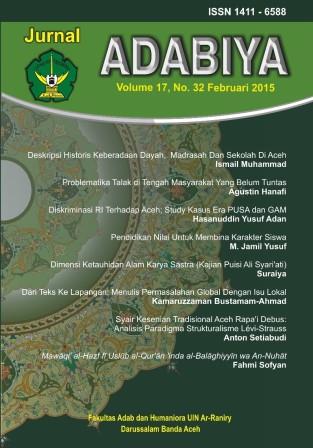References
Ghony, M. D., & Almanshur, F. 2016. Metodologi Penelitian Kualitatif. Jakarta: Ar-Ruzz Media.
Harmoko, Sapto, 2017. Analisis tingkat Kepuasan Pemustaka terhadap Layanan di Perpustakaan Politeknik Kesehatan Kementrian Kesehatan Yogyakarta. Jurnal JIPI Vol. 2, No. 2 Tahun 2017
Hartono, 2016. Manajemen Perpustakaan Profesional: Dasar-dasar Teori Perpustakaan dan Aplikasi. Jakarta: Sagung Seto.
Ibrahim, A., 2016. Manajemen dan Administrasi perpustakaan. Jakarta: Syahadah.
Indrawan, Irjus, et. El., 2019. Manajemen Perpustakaan Sekolah. Jawa Timur: Qiara Media
John A, Pearce II dan Richard B. Robinson JR, 2014. Manajemen Strategik, Tangerang Binarupa Aksara.
Lasa HS, 2005. Manajemen Perpustakaan. Yogyakarta: Gama Media.
Mubasyaroh, 2016. Pengaruh Perpustakaan Bagi Peningkatan Mutu Pendidikan Perguruan Tinggi, Libraria, 4 (1) Juni 2016.
Mutia, F., & KS, A. 2011. Sarana dan Prasarana Ruang Perpustakaan sebagai Aspek Kekuatan dalam Mengembangkan Perpustakaan. Jurnal Palimpsest, 3 (1), 1-8.
Satori, D., dan Komariah, A., 2011. Metode Penelitian Kualitatif. Bandung: Alfabeta.
Sulistyo-Basuki, 2008. Pengantar Ilmu Perpustakaan. Jakarta Gramedia Pustaka.
Sutarno, N.S., 2006. Manajemen Perpustakaan Suatu Pendekatan Praktek. Jakarta : Sagung Seto



